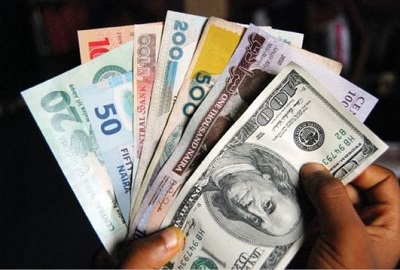There was naira scarcity on the interbank market Tuesday, leading the overnight tenor of the Nigerian Interbank Offered Rate (NIBOR) to close at 120.08 per cent.
The overnight lending had hit 148 per cent on Monday as news of a Federal High Court ex parte order instructing all Nigerian banks to forfeit all monies held in accounts without bank verification numbers (BVNs) to the federal government in 14 days from the date the order was given, filtered into the market.
Justice Nnamdi Dimgba Igwe had granted the order on October 18, 2017, following an application by the Attorney-General of the Federation (AGF) and Minister of Justice, Mr. Abubakar Malami (SAN), on behalf of the federal government.
The banks were asked to show cause why the monies belonging to companies and individuals should not be forfeited to the federal government 14 days from the date the order was given.
The chief executive of Financial Derivatives Company Limited, Mr. Bismarck Rewane, had warned that the decision by the court would lead to a liquidity squeeze in the market.
But an analyst at Ecobank Nigeria, Mr. Kunle Ezun, who spoke with THISDAY, attributed the development to the Central Bank of Nigeria's (CBN) open market operations as well as its sustained Wholesale Secondary Market Intervention Sales (SMIS) auction that requires firms to deposit naira cash before they can purchase dollars.
Ezun, however, expressed optimism that there will be some easing once the monthly funds from the Federation Accounts Allocation Committee (FAAC) hits the banking system.
The central bank has kept the benchmark policy rate high in its bid to fight inflation and attract foreign investors. It has also been selling treasury securities almost four times a week to soak up naira liquidity and reduce pressure in the foreign exchange market.
The Chief Executive of Afrinvest West Africa Limited, Mr. Ike Chioke, noted that while last year the economy witnessed illiquidity in the forex market, this year it has experinced illiquidity position in the naira market.
"There are now dollars in the market, the exchange rate has stabilised, but people are looking for naira with which to purchase dollars.
"Some of the central bank's measures which ensure you put your cash down before you can buy the dollars, were designed to prevent speculators from coming into the forex market to drive the exchange rate to the high heavens.
"It also frustrates normal businesses where for instance, if this building was a hotel and you feel like expanding to the next compound, traditionally you will take a bank loan to finance the imported equipment to build that extension.
"But now the banks would not give you the loan until you bring your naira cash upfront. So it frustrates your capacity to grow and that is what we are seeing across many parts of the economy," he added.
Traders said the liquidity deficit in the banking system was widening, after hitting N300 billion Tuesday.


















Comments